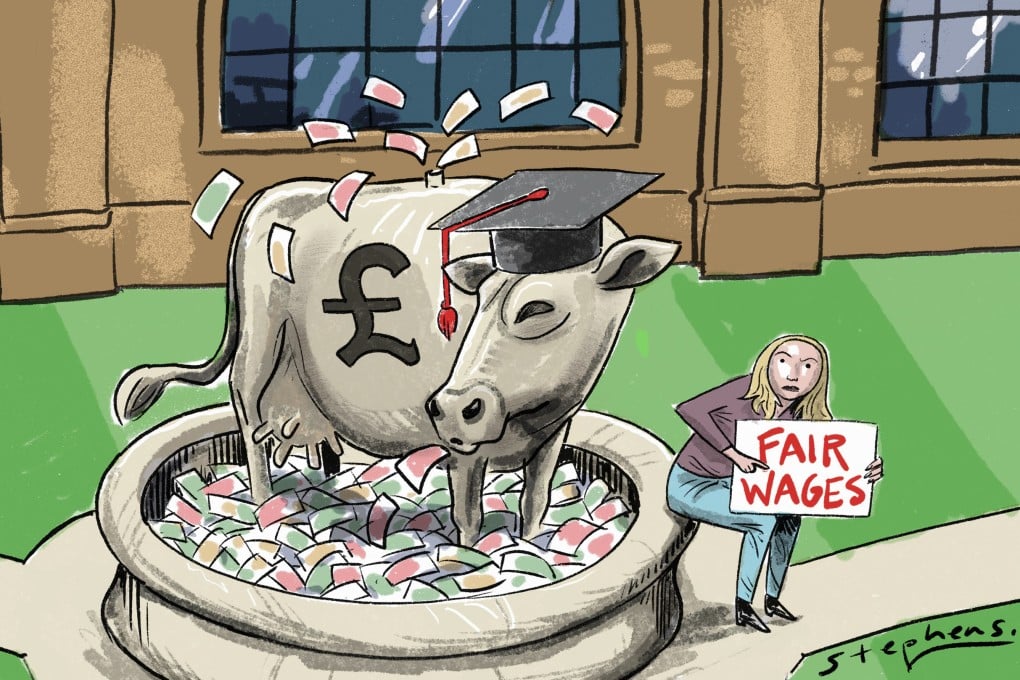Opinion | UK university strikes reflect the ills of the marketisation of higher education
- Driven by a need for income, Britain’s universities have seen an explosion in student numbers. But, as the workload has increased, job security has not
- With academic pay now seriously falling behind inflation, staff are struggling to cope with rising costs

On April 20, academic staff all over the United Kingdom began an exam-marking boycott whereby they will not correct students’ final examinations. While strikes in the UK academic system have taken place occasionally, the numbers are significant this time.
Led by the University and College Union (UCU), more than 70,000 staff members in 145 universities in the UK are taking part. The strikes are indicative of a larger failing in the academic sector in Britain, one of the most coveted centres of education for students across the world. Thus, it would be instructive to examine the main factors and causes at play.
Britain boasts some of the oldest universities in the world with major names such as Oxford and Cambridge having been established in the 11th and 13th centuries respectively. As such, gaining an education in Britain has long been a sign of prestige for people across the world.
Until the late 20th century, most universities were run on state funding. However, several developments have changed the face of university education in the UK.
First, the number of universities has mushroomed significantly in an attempt to increase access for the British public. Thus, under Tony Blair’s government, there was a pledge to enrol at least 50 per cent of young adults in universities.
Second, while universities were initially government-funded and free for students, fees were then introduced to manage costs, developing from a cap of £1,000 (US$1,245) a year to the current sum of £9,250 a year. For international students, this amount is now on average more than double, to help pay for various developments in infrastructure or the curriculum.
